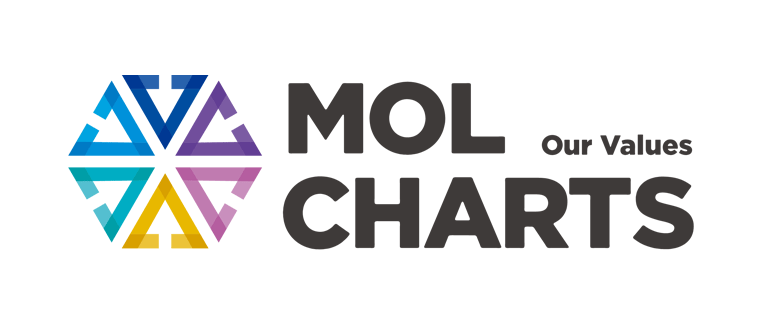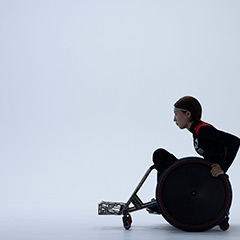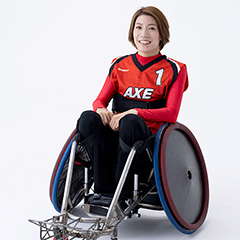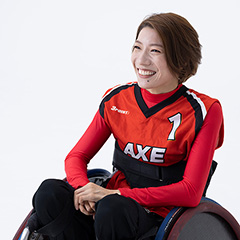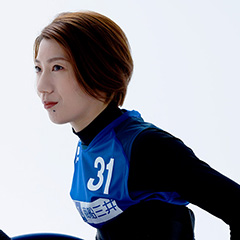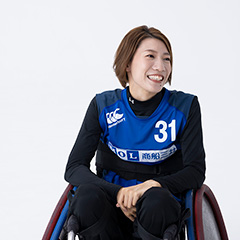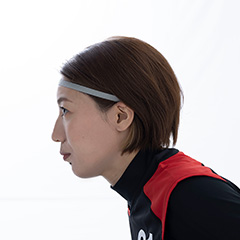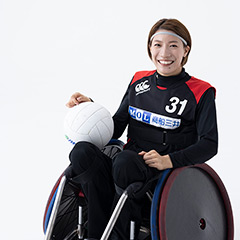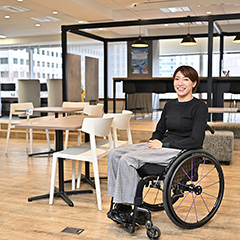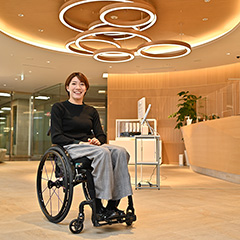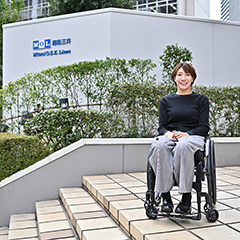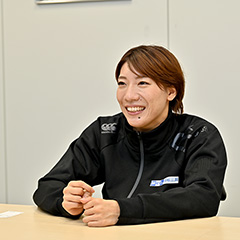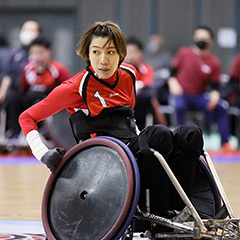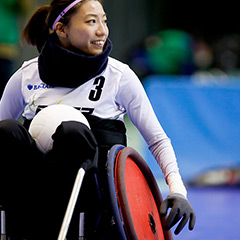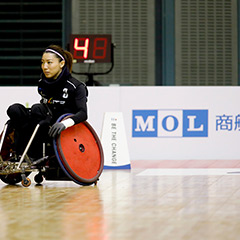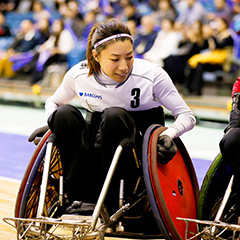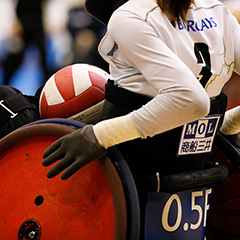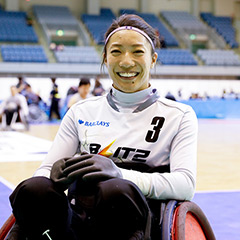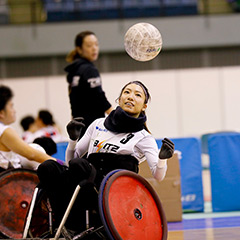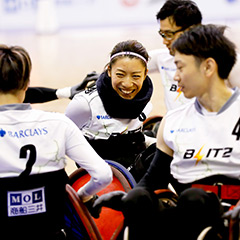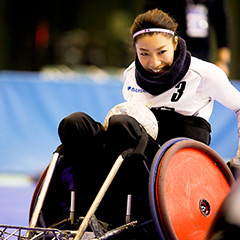I have enjoyed sports since my childhood. Because I was a hyperactive child, never standing still, my parents could not bear to watch me, and maybe they thought, "Let her do some exercise." I guess they thought I would get tired, quiet down, and go to sleep early (laughs).
After trying various sports, I decided gymnastics was the most fun. I started learning gymnastics when I was in the first grade, and continued through junior high and high school. What's interesting about gymnastics is that there are so many techniques. As I continued to practice, I was finally able to master one technique. Then another, and another. I continued to progress, and I was having so much fun.
I started on the trampoline when I went to university. The fun of picking up new techniques was still there. But during a competition in my third year at university, I lost my balance while jumping up into the air, and fell on my head. I thought "Protect my head," but it was too late. I passed in and out of consciousness, and there was no feeling at all even in my arms and shoulders when the rescuers touched me. And I remember thinking, "I really messed up." I had lost all feeling below my collarbone due to a cervical spinal cord injury, and that hasn't changed to this day. Of course, it was a really serious accident, and everyone around me was shocked. But when I came to, my first thought was, "Well, I'm alive, I'm lucky."
When I talk about this, I may seem like a very positive person, but it wasn't always the case. Actually, I used to be the kind of person who gets bogged down with minor details, indecisive and constantly worrying about them. But the accident did not turn me more to that negative direction. Realizing that the accident could have cost me my life, I decided to focus on "being alive now" instead. I want to do my best at what I want to do, and what I can do; otherwise, I'm sure I will regret it. Because like anyone, I may die tomorrow—That's how I was thinking.


